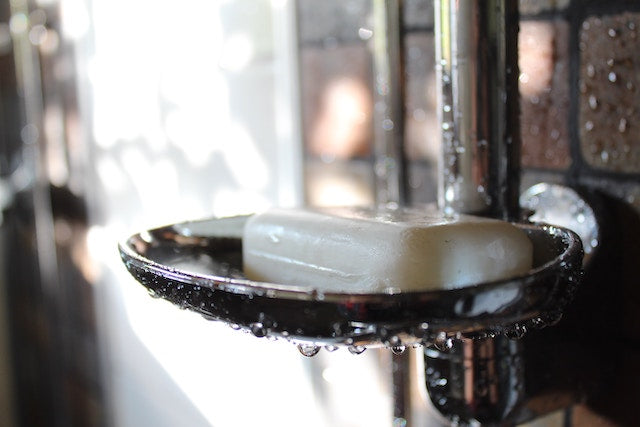The Dangers of Antibiotic and Antibacterial Soaps
Originally used only in hospitals, triclosan is a drug that has been adopted by manufacturers of conventional soaps. About 75% of liquid antibacterial soaps and 30% of antibiotic bar soap use triclosan as an active ingredient, which has resulted in an industry that is worth an estimated $1 billion.
Triclosan is not only used in soaps and antibacterial washes but also in wipes, hand sanitizer, plastic cutting boards, mattress covers, and a variety of industrial household home items. Although the goal of a “germ-free” world seems nobel, the fact of the matter is, triclosan was never fully evaluated by the FDA. Unfortunately, research is showing that its effects on human health are quite disastrous.
So before you wash your face and body tonight with that bar of soap, consider some of these alarming facts and potential risks of using antibacterial soaps daily.

Top Reasons to STOP Using Antibacterial Soap
Antibiotic-Resistant Bacteria.
Of the many negative effects that can come from using antibacterial soaps, bacterial resistance is on top of the list. When you use antibacterial soap with triclosan, both pathogens and probiotic strains of bacteria are killed, whipping out the skin’s immune system. This leaves it vulnerable to infection for hours. What’s worse is that the pathogens can develop their own resistance to antibiotics, like triclosan, which makes them come back stronger than before. 1
Endocrine Disruptors.
Antibacterial soaps (and most commercial skincare) also have endocrine-disrupting effects. A number of studies done on rats, frogs, and other animals show that triclosan can interfere with normal thyroid function. This is likely because the chemical is a xenoestrogen and resembles the anti-thyroid effects of estrogen. It also seems to compete with the thyroid hormone binding sites, which inhibits its cellular effects.
Because the thyroid hormone is so essential for overall metabolic health, the use of antibacterial soaps can lead to problems such as infertility, androgyny, obesity, and even cancer. These same effects haven't yet been proven yet in human trials, but it's likely not worth finding out. 2 Read our previous article on how your thyroid affects your skin to learn more about the thyroid-skin connection.

Immune Deficiencies.
Another side effect of triclosan is bogging down the metabolism and interfering with thyroid function. There happens to be supportive evidence that children with prolonged exposure to triclosan have a higher chance of developing immune issues like allergies and hayfever. In fact, researchers suggest that these effects are a result of both the development of resistant bacteria and compromised endocrine function. 3, 4, 5
What To Do About It
As horrific as these effects are, there is good news: you do not have to use antibacterial soap. First off, as science is discovering, our skin has an incredibly intelligent immune system and does an amazing job of fighting off pathogens itself. Secondly, there are safe, natural alternatives for cleansers and soaps that can provide non-toxic protective effects from inflammation and pathogens.
For example, our Pearl Cleanser contains a variety of nourishing ingredients that are not associated with any negative side effects. The natural botanicals in the Pearl Cleanser effectively cleanse the skin of dirt and debris, promote skin regeneration, and also provide soothing, anti-inflammatory effects. We suggest ditching the antibacterial cleansers and soaps immediately and upgrading to something natural and safe like this.
To learn more about the ins and outs of natural skincare, download our Natural Path to Perfect Skin e-book below.

The Natural Path to Perfect Skin
30 PAGES FULL OF SKINCARE SECRETS








Leave a comment